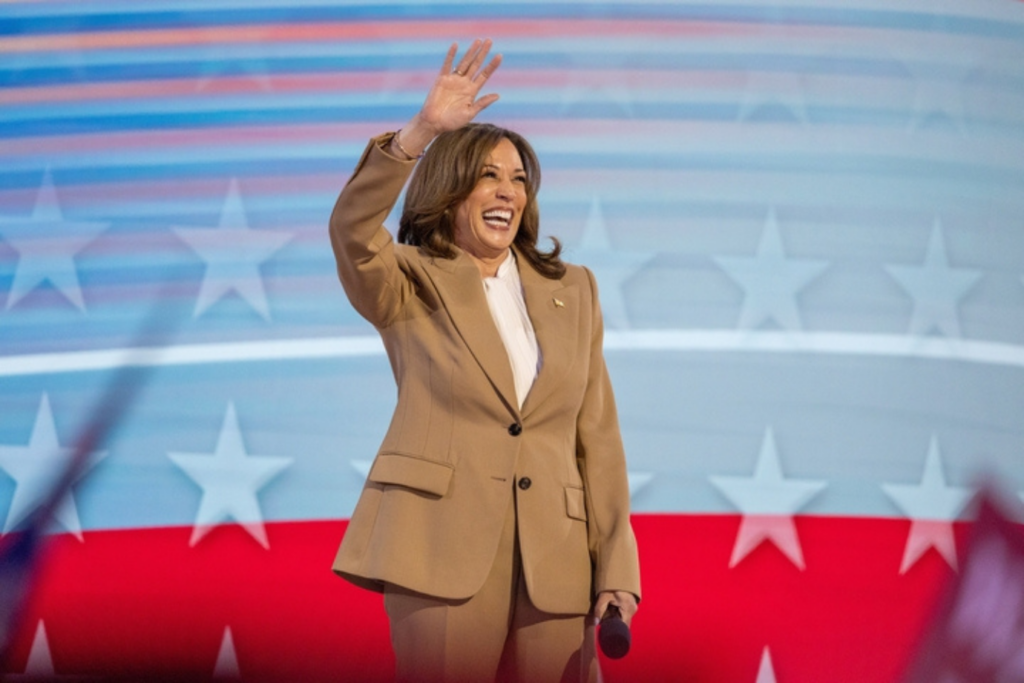I’ve been following gender and politics in US campaigns since Geraldine Ferraro became the first female Democratic VP nominee in 1984. It wasn’t until 2008, 24 years later, that another woman, Alaska Governor Sarah Palin, appeared on a major party ticket when Senator John McCain selected her as his running mate.
Fast forward 16 years from Palin, and now Kamala Harris is in the race of her life as she seeks to shatter the ultimate glass ceiling: the presidency.
Despite this progress, the movement for gender equity that Ferraro came to represent is still a long way from fulfilling its potential. Not too long, I hope—ideally less a week— but there remains a persistent gap between aspiration and reality.
For women, the path to the White House remains a long, complex, much-scrutinised road where gender is still very much a focal point of scrutiny and bias. Take Kamala Harris’ campaign, for example. Unlike former Democratic presidential candidate Hillary Clinton, Kamala Harris has not centred her campaign on the notion of becoming the first female president. No gender card has been overtly played.
It’s likely a strategic decision aimed at broadening her appeal. Or, in other words, an attempt to navigate the treacherous waters of gender politics by shifting the focus away from her gender and towards her policies and qualifications. Because god forbid female candidates discuss gender or allow it to shape their narratives—lest it detract from their electability or policy platforms!
In a political landscape where women must constantly tiptoe through a metaphorical minefield of gender bias and stereotypes, the expectation is clear: conform to the status quo, or risk being on the receiving end of gendered attacks. While their male counterparts can freely embrace their identities without consequence, women are pressured to downplay a fundamental aspect of their experience. It’s a double standard that must be called out if we ever hope to achieve true equality in political representation.
But let’s return to Harris. While she continues to perform a delicate balancing act, navigating the complexities that women face in politics and avoiding the gender card, she finds herself in a political environment rife with gendered attacks and biases that seek to undermine her credibility. We’ve seen JD Vance talk about “childless cat ladies”, while President Trump has used his social media platform Truth Social to make lewd sexual comments about his presidential opponent. So, the gender card is in the race and heading to the polling booths.
Another way gender is being played out is through the representation of masculinity. Harris has surrounded herself with antidotes to the toxic masculinity exemplified by Trump. Her partner in life, Doug Emhoff, and her partner in politics, Tim Walz, both take pride in standing alongside her, supporting her leadership, and allowing her to take centre stage. Their brand of masculinity is not threatened by a strong woman ready to be President, nor should it be.
This election highlights not a “women problem” in politics, but rather a “male problem.” Men who struggle to partner with women who are their equals or superiors, men who find it difficult to be vulnerable, men who are narcissistic, and men who are afraid—perhaps even terrified—of capable women. These men are drawn to representation that looks, talks, and walks like them, clinging to a narrow definition of leadership that has kept women from high office for too long. Again, gendered dynamics play a significant role here, and while Kamala Harris may choose not to play the gender card, at every turn, the gender card is very much in play—used against her and women like her.
So, should Harris lean into her identity as a woman, embracing the rights and representation it symbolises? You’d forgive her for not doing so, but here’s the thing: Harris is struggling to win support from men, and former President Donald Trump has the same problem with women. It figures that, by speaking to women and daring to play the gender card—even just a smidge—Harris could better resonate with female voters. We saw a step in that direction this week with Harris sitting alongside Liz Cheney at events in three battleground states, where Cheney urged anti-abortion female voters to consider backing Harris.
Women are concerned about economic issues, and if I were advising Harris, I would emphasise the importance of digging into gender and economics during these final weeks. Women’s work is undervalued across the board, from domestic and caring responsibilities to the board room, and they earn approximately 18 per cent less than men in the US. Women disproportionately shoulder the lion’s share—or should I say lionesses’ share—of caregiving duties, both paid and unpaid.
In the US, as in Australia, cost-of-living pressures are affecting all households. Therefore, a strategy that blends gender and economics could enhance Harris’s economic credentials while also promoting gender equity. She has effectively championed reproductive freedom and rallied support around that issue. It’s time to turn up the heat and expand the discussion beyond reproductive rights to address broader economic concerns.
I would focus on appealing to women who head up households, juggle caregiving responsibilities, and who bring home a pay cheque. I would be getting endorsements from people across generations who benefit from women’s work and the women who helped get them there: their mums, aunts, school teachers, sisters, grandparents, nurses, and friends. The more men like Tim, Doug, and the young Gus Walz, who proudly declared his unconditional love for his dad, show up as confident and unapologetic supporters—and, importantly, voters for a woman—the more we will see a cultural shift in our Western democracies.
US politics bleeds into other political landscapes, which is why this matters in Australia. We have spent generations fighting for reproductive health care, and just this week, it was back on the agenda in my state. This highlights the importance of paying attention to gender dynamics in the US, as it is already playing out here. No time for Gilead, or Utopia, but we do need less hypermasculinity in our world.
We need women like Harris, who can inspire joy, call out lies, stand shoulder to shoulder with other women as allies, and hold space for those who are unable to speak their truth.
So, what does Harris’ campaign reveal about the complexities of navigating power as a woman, carrying the weight of history and expectation? Well, a lot. Like Geraldine Ferraro’s journey, it reminds us that while barriers have been shattered, new challenges persist.
As Harris seeks to redefine leadership, she stands not just for herself but for a generation of women still fighting for their place at the table. In this ongoing struggle, her ability to embrace her identity, speak to the experiences of women, and challenge the status quo could shape not only her destiny but the future of women in politics. Let’s hope so, anyway.


